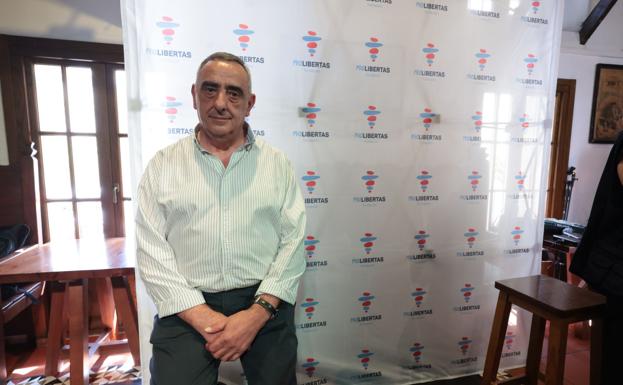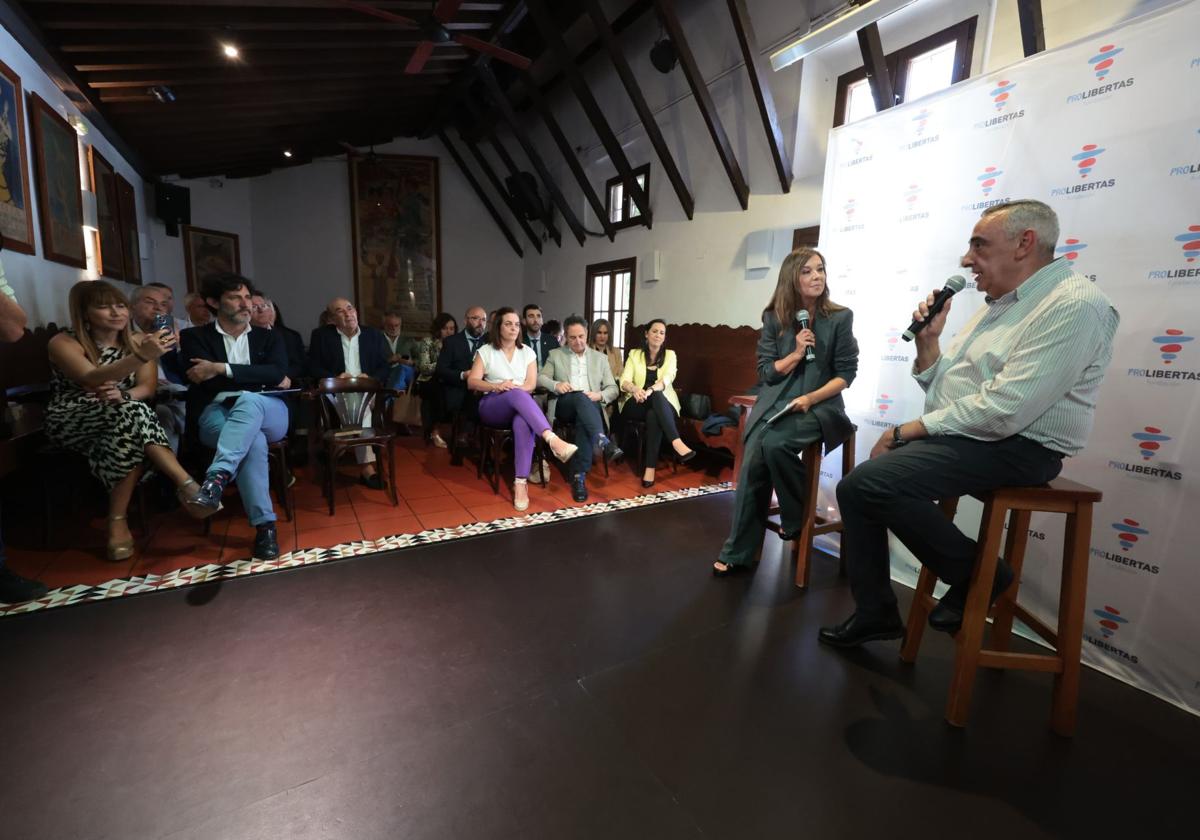A second-chance home in Malaga city opens for ex-convicts
Fundación Prolibertas was born in Antequera 24 years ago when the prison chaplains of the Trinitarian order realised that former inmates were returning to crime because their only safe space was prison
The Prolibertas Foundation was founded 24 years ago in Antequera. This happened thanks to a group of people, including its director-general, Antonio Jiménez Fuentes, who were working in prisons as chaplains. This was an integral, traditional part of the work carried out by the order to which he belongs - the Trinitarians - and this group came up against some very harsh realities that clashed head-on with the libertarian vocation of their congregation. As Jiménez Fuentes himself admits, the first thing that struck him was that people were relapsing into crime in order to return to prison, because it was only that environment that afforded them any security in life. In brief, they were unable to cope with the longed-for freedom that they had regained and so, when it came to the moment of truth, they were unable to handle that sense of freedom. This might have been because the ex-convicts simply didn't have a roof over their head, or a place to call home.
So what Prolibertas wants is to accompany and support these people as they make the transition from prison to freedom, "that great dream, but when the time comes to enjoy it, it's scary." In this spirit, Casa Libertad (freedom house) Jacaranda has now opened in Malaga city, the first shelter for released prisoners that this organisation has set up in the provincial capital, in addition to others that it manages throughout Spain, from Antequera to Madrid, also Cordoba, Valdepeñas, Seville and San Fernando. These are social insertion projects for people who previously had been deprived of their freedom and now need to rejoin mainstream society.
"In the vast majority of cases it is a profile of people who already come from a reality of exclusion. Prison is nothing more than the outcome of a process that was already being forged beforehand."
This sheltered housing has eight places, although the organisation does not aim to fill it immediately. The plan is to build it up gradually. Right now, for example, there are only two female tenants, with whom they are working on a very tailored basis. "Each situation is different, they come from very difficult contexts, with a lot of pain", says the foundation's president. He continues: "In the vast majority of cases it is a profile of people who already come from a reality of exclusion. Most of them end up in prison for drug trafficking, drug use, theft. They come from very harsh realities and prison is nothing more than the outcome of a process that was already being forged beforehand. They are very broken. Exclusion is a very complicated world and, if you are a woman, it becomes even more complicated."
Antonio Jiménez provides some reasons for those complications. Firstly, it is tremendously more difficult for these women to find a job, especially a stable one. Then, in many cases they come with family burdens, with children. In other cases, there are women who have worked on the streets, an experience that is particularly damaging for them because of all the danger and fear it involves. "The intervention is therefore slower, more personalised, but also safer in the end. From our experience in the centres, one sees that the women have much more willpower."

Intervention begins with prison release permits
Generally speaking, the organisation works with women beginning their process towards freedom. These are women who have already served the greater part of their sentence and can begin their prison leave. In this sense, support for these women often begins while still in prison, as happens in Alhaurín de la Torre jail, among others. There, during this process to prepare them for their reintegration into society, it is determined whether they truly have the will to reintegrate and, if so, Prolibertas endorses them so they can enjoy some prison leave. In addition, other former inmates referred to the CIS (the Spanish prison system's network of social insertion centres attached to prisons) can also come to the foundation, where they transit to the third, pre-release stage of their sentence and must spend nights or weekends there.
"The main problem they face is that they have no resources to live on. While they are serving their sentence, fine, but eventually that comes to an end."
According to Ana María Villalón Montesinos, director of the CIS, Casa Libertad Jacaranda is well-placed to alleviate what is the biggest problem faced by people leaving prison: not having resources to live well enough and no family network to give them physical shelter. "While they are serving their sentence, fine, but eventually that comes to an end." Furthermore, she agrees that it is worse for women: "They have had fewer training opportunities, so they have more problems finding work. In addition, they come from a very marginal environment, they are in many cases users of social resources in general and they have probably had a life that has been very focused on being carers of the home or the family. Therefore, the barriers they face are more difficult."
"The Spanish Constitution states that the objective of custodial sentences is the social reintegration of individuals. The reality, for many reasons, such as overcrowding, lack of staff and resources or sometimes much more serious issues, means that prison is not the ideal setting called for by the Constitution. Sometimes what comes together is a lot of impotence, a lot of resentment, a lot of anger. And yes, it is the third sector, and it is the Church, the prison ministry, because Prolibertas was born from the experience of many of us who were chaplains at the time and worked in prisons, those who intervened", states Antonio Jiménez.
Presentation at El Pimpi
The presentation for the opening of Casa Libertad Jacaranda took place this Wednesday at El Pimpi and was attended by representatives of all the relevant institutions, as well as a large group from third sector organisations (NGOs and so on) in Malaga.
Ruth Sarabia, the Junta's delegate for social inclusion, youth, families and equality, stressed that ex-prisoners, after years being deprived of freedom, kept out of the jobs market and with the subsequent psychological damage from all that, "are more likely to reoffend" if they have no roof over their head or food on the table. "If they do not see a future, security and stability, it is very difficult not to reoffend." Sarabia also urged employers to provide work for these people: "We need more committed employers, a dynamic business fabric to take in these people."
Next to comment was Malaga city's councillor for social rights, diversity, equality and accessibility, Francisco Cantos, who left this idea floating in the air: "No one is free from the possibility that, at any given moment, our life may take a turn and we may be surprised by a situation in which our vulnerability comes to the surface." Anyone can have a setback. What must be avoided is that such setbacks become chronic by going on for too long or they keep repeating. That is why there are resources such as the one set up by the Fundación Prolibertas, to help people get their lives back to the way they were before the setback or even to start a completely new life.

